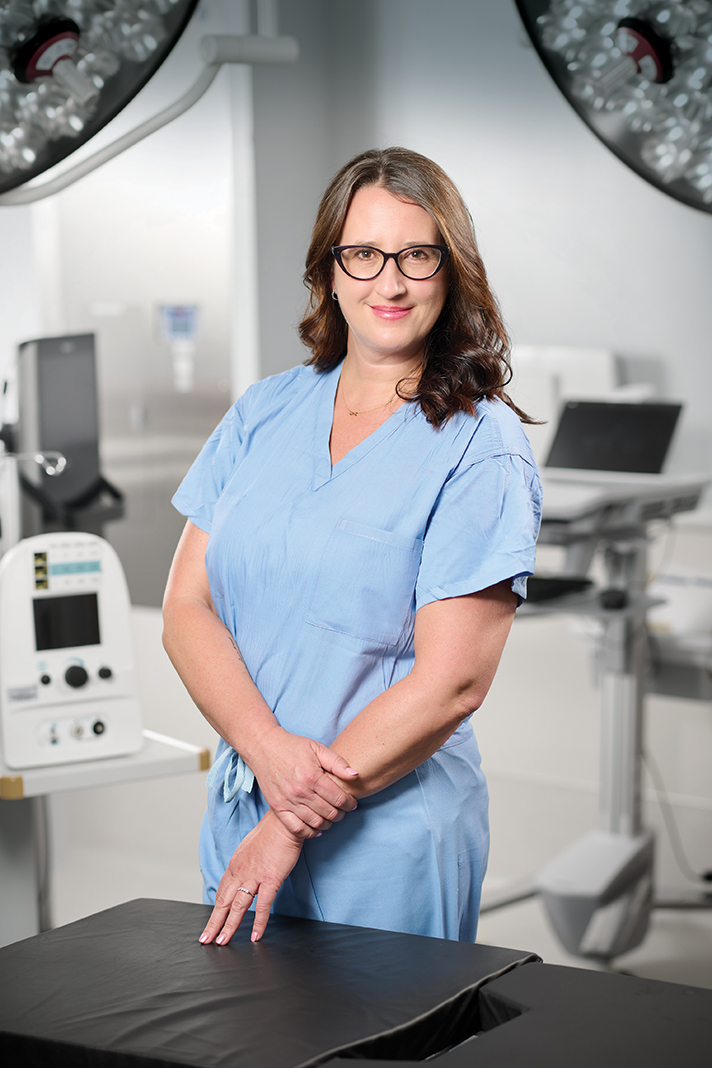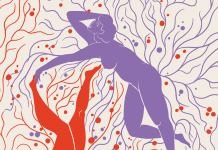
Photo by Bill Bartlett
Dr. Natasha Rueth has been in the field of cancer surgery for almost 10 years. At Allina Health, based in Minneapolis, her clinical emphasis is on breast cancer. When the U.S. Preventive Services Task Force recently lowered the recommended age for women to begin annual breast cancer screenings, to 40 from 50, she says it was a long time coming. “I will tell you that those of us in the breast cancer world always supported screening for women starting at the age of 40,” Dr. Rueth says, “because we know that an annual mammogram is the best way to reduce a woman’s risk of dying of breast cancer.”
We talked with Dr. Rueth about changes in her field, what she wishes patients knew about breast cancer, and access to care.
On the biggest change in the field since Dr. Rueth started her clinical emphasis on breast cancer:
I think of three main areas where clinical care and breast cancer have really changed or advanced, and all of them have the same theme of more patient-specific or patient-directed appropriate therapies.
The first has been the advent of 3D mammography, or tomosynthesis mammograms. Those really started coming to the forefront right around nine or 10 years ago and are now really the standard, or should be the standard, of care for breast cancer screening. They allow for better visualization. They increase the cancer detection rates and decrease the number of false positives and callbacks.
From a surgical standpoint, our big advances are continued de-escalation of surgery, meaning breast cancer doesn’t have to be something that causes a drastic change to the external visualization—the look or the feel—of a woman’s body. We’ve spent a lot of time studying and showing that minimally invasive surgery—lumpectomies; breast conservation; and, now, de-escalation of nodal surgery, so that we’re not performing such destructive procedures on women—are associated with equal long-term cancer outcomes. So, allowing women to preserve their natural body image and shape has been a really important advance, and we continue to find ways to de-escalate surgical interventions in breast cancer.
A lot of that is a result of advances in targeted immunotherapy. So, our systemic therapies continue to get more advanced, more targeted to the specific biology of cells, which allows us to give the right therapy to the right women at the right time, which is associated with increased response rates and longer survival for breast cancer patients.
On what she wishes patients knew about breast cancer:
Early-stage breast cancer, for a lot of women, is associated with really high curability and survival rates. And so, breast health and keeping up on your screening is really important. It is the easiest way to save your breast and save your life. The other thing is … we have spent a lot of time studying how, because breast cancer has become very survivable, we know it’s very safe to save women’s breasts. Oftentimes, women hear that they have breast cancer and their first inclination is, “Oh, my gosh, I have to have my breasts removed,” and their mind immediately goes toward worrying about how they are going to function with extremely body-altering surgery. And I spend a lot of time going through the data and reminding women that in a lot of instances—not all, but for a lot of women—it is very safe to keep your breasts. The thing I would really remind women is that there are a lot of treatment options that are very individualized, targeted, and a lot of them are associated with very good long-term outcomes. And make sure their information is coming from their physician and reputable sources at the time of their surgical consult.
On women worried about false positive results to breast cancer screenings:
It’s not uncommon for women with certain breast tissue composition to have a callback for a second look, and that is really just to be thorough. The last thing anybody wants to do is miss a potentially life-threatening problem. And so, if the tissue is more difficult to visualize, absolutely, we’re going to call you back for an ultrasound and take a look. And that’s not anything to be scared of, or to shy away from. … Callbacks shouldn’t trigger unnecessary angst, because the callback rate, even with 3D mammograms, can be fairly high, especially in younger women. It’s normal, and it’s OK.
On ways Allina is focused on increasing access to all women:
Access is so incredibly important. [It involves] things like mobile mammography, which is something that the Allina breast program focuses on—making sure that we’re getting mammograms to people, particularly populations who might not have the resources, the transportation, the childcare, the time, or even the trust to come into a large breast center or clinic to get a mammogram. [It involves] making sure that cultural sensitivities are approached [for] specific subsets of patients who might have sensitive needs, like transgender patients who perhaps don’t even know it’s important to have breast imaging if they’re taking estrogen supplementation, for example, as part of body confirmation work; or patients who maybe have language and cultural barriers.
When a diagnosis is made, [it’s important] that you have a program like [Allina’s] where there’s access to integrative medicine. Everybody might not want to exclusively focus on traditional Western approaches, and so integrative medicine can focus on whole-body and supplementive care, like acupuncture. Financial navigators can help patients work through the financial toxicity that can come along with, in particular, a cancer diagnosis.
On distrust in medical institutions:
One of the things that we’ve seen since COVID-19, and some of the ways COVID challenged healthcare, is that more and more patients are coming asking for unique treatment options, or perhaps a bit more distrust of the medical system. I really strongly encourage women, if they have any question about their treatment plan, to make sure that they are embracing all available modalities, including some of the more traditional, supported, medically recommended therapies in addition to alternative approaches, if that’s something that is of value to them, but to not rely too heavily on one or the other, particularly if it isn’t a guideline-supported, data-driven recommendation.
Read more about breast cancer for Breast Cancer Awareness Month: Minnesota doctors weigh in on screening guidelines, advances in treatment, and how to reduce your risk






